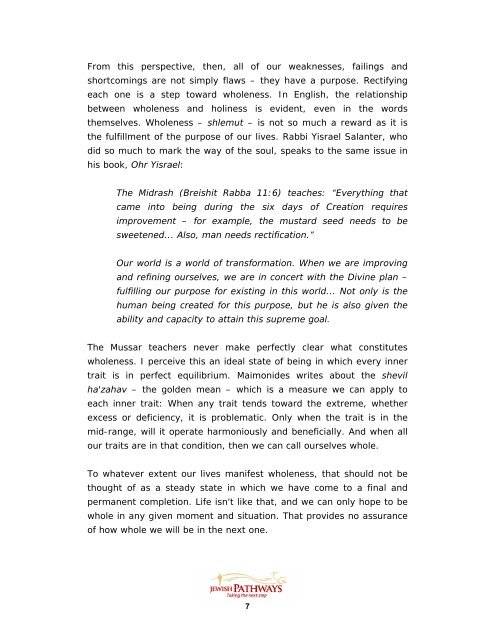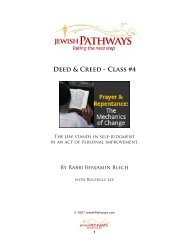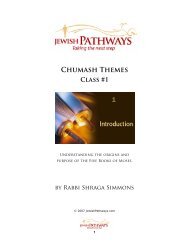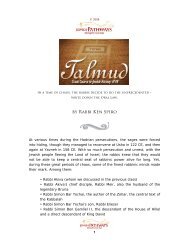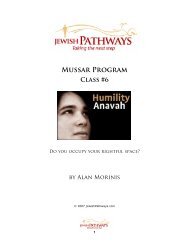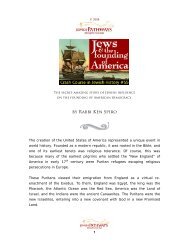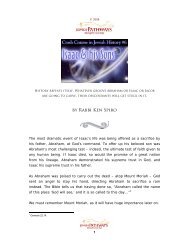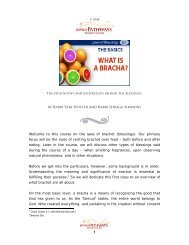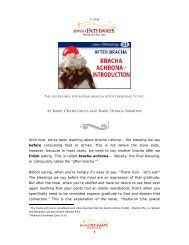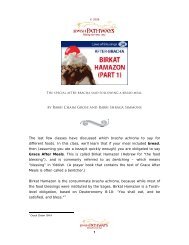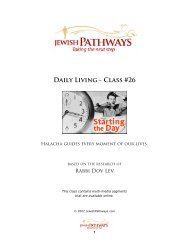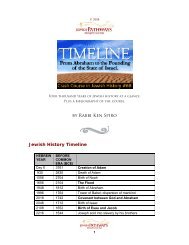MUSSAR PROGRAM ClASS #2 - JewishPathways.com
MUSSAR PROGRAM ClASS #2 - JewishPathways.com
MUSSAR PROGRAM ClASS #2 - JewishPathways.com
Create successful ePaper yourself
Turn your PDF publications into a flip-book with our unique Google optimized e-Paper software.
From this perspective, then, all of our weaknesses, failings and<br />
short<strong>com</strong>ings are not simply flaws – they have a purpose. Rectifying<br />
each one is a step toward wholeness. In English, the relationship<br />
between wholeness and holiness is evident, even in the words<br />
themselves. Wholeness – shlemut – is not so much a reward as it is<br />
the fulfillment of the purpose of our lives. Rabbi Yisrael Salanter, who<br />
did so much to mark the way of the soul, speaks to the same issue in<br />
his book, Ohr Yisrael:<br />
The Midrash (Breishit Rabba 11:6) teaches: “Everything that<br />
came into being during the six days of Creation requires<br />
improvement – for example, the mustard seed needs to be<br />
sweetened... Also, man needs rectification.”<br />
Our world is a world of transformation. When we are improving<br />
and refining ourselves, we are in concert with the Divine plan –<br />
fulfilling our purpose for existing in this world... Not only is the<br />
human being created for this purpose, but he is also given the<br />
ability and capacity to attain this supreme goal.<br />
The Mussar teachers never make perfectly clear what constitutes<br />
wholeness. I perceive this an ideal state of being in which every inner<br />
trait is in perfect equilibrium. Maimonides writes about the shevil<br />
ha'zahav – the golden mean – which is a measure we can apply to<br />
each inner trait: When any trait tends toward the extreme, whether<br />
excess or deficiency, it is problematic. Only when the trait is in the<br />
mid-range, will it operate harmoniously and beneficially. And when all<br />
our traits are in that condition, then we can call ourselves whole.<br />
To whatever extent our lives manifest wholeness, that should not be<br />
thought of as a steady state in which we have <strong>com</strong>e to a final and<br />
permanent <strong>com</strong>pletion. Life isn't like that, and we can only hope to be<br />
whole in any given moment and situation. That provides no assurance<br />
of how whole we will be in the next one.<br />
7


